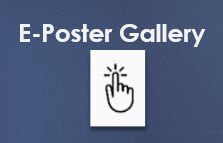
Central European Summer Time CEST/GMT+2
Recorded sessions on demand will be available 24 hours after the session ends
Impact of antimicrobial stewardship in paediatric hospital care
Practical approaches to guide decision making for antibiotic stewardship in neonatal early onset sepsis?
Abstract
Abstract Body
When to start and when to stop antibiotics in late-preterm and term neonates suspected of early-onset sepsis is a daily dilemma for many pediatricians. The huge variation in clinical practice within hospitals and within guidelines from different countries reflect this. Depending on the strategy, between 2 and 14% of late-preterm and term neonates are treated with antibiotics because of suspicion of early-onset sepsis. In only 0,1-0,3 % of these neonates early-onset sepsis is proven. This suggests significant overtreatment. Evidence is accumulating that antibiotic treatment early in life has important consequences for health later in life as inflammatory diseases as allergies, eczema, inflammatory bowel disease, and also obesity are associated with exposure to antibiotics early in life. New approaches to reduce antibiotic overtreatment of neonates are urgently needed. The neonatal sepsis calculator is one of the strategies that is increasingly used to reduce the number of neonates started on antibiotics, and the NeoPInS algorithm to shorten the duration of antibiotic exposure. These strategies will be discussed including the latest data, artificial intelligence approaches, and other future directions for improvement of the care for late-preterm and term neonates suspected of early-onset sepsis.

